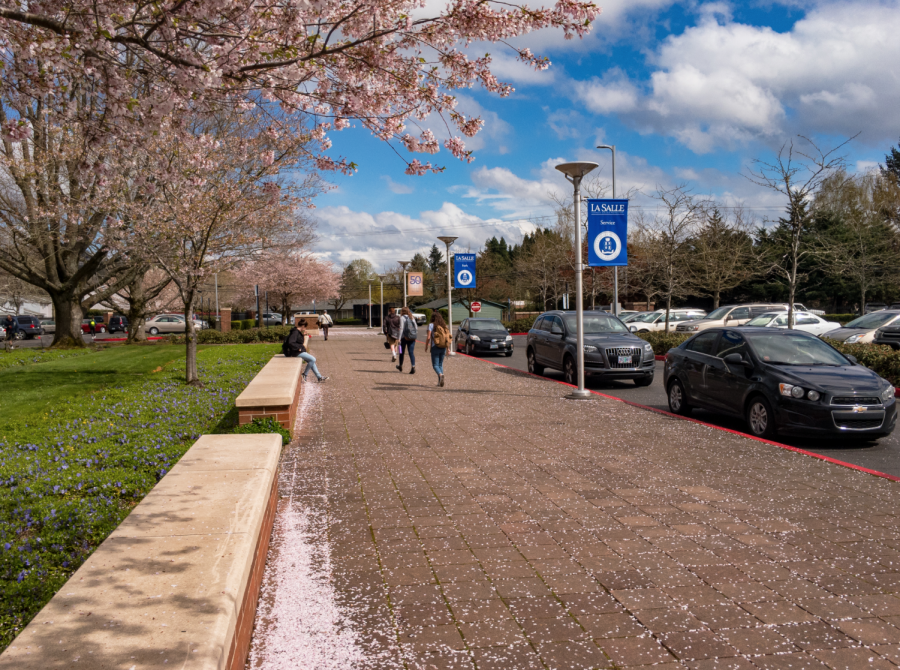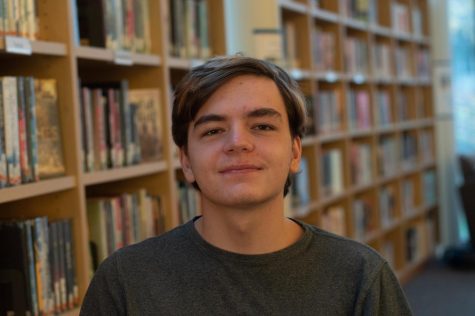How Confidence, Hope, and Taking Risks Leads to Success
Blending in is hard, but we had to trust that it would end up fine.
January 22, 2020
Sometimes we feel like the world could offer us more of a bite to chew. And sometimes, we make leaps of faith based on the idea that there is always more we can explore, or more that we have to prove.
For freshman Bobby Brotherton, sophomore Brooklyn Chillemi, and myself, a little part of that aspiration has come to reality. Each of us decided, at one point or another, to skip past eighth-grade and enter high school a year early.
While the purpose of this change is generally similar for the three of us (and many others), every person has their own unique drive and experience.
For Chillemi, she felt as if there was more that could be done or more that could be learned. She felt like there was precious time being wasted, and so much more could be accomplished if given the opportunity to do so.
“[Middle school is] just a negative space to be in when the whole time you’re thinking ‘this is useless, why am I doing it,’ and so it just brought a lot of negative atmosphere,” she said.
In Brotherton’s case, it was more so a looming sense of boredom and the impression he could find a more mature, stable social atmosphere in a high school environment.
Personally, I felt a slight combination of the two. But more so than anything else, I wanted to prove something to myself and my family.
All three of us experienced unease and apprehension for similar reasons. We wanted to fit in, we wanted to be successful, and we wanted to integrate into the community like everyone else. For most people who take the risk of skipping a grade, these are some of the biggest challenges.
Even with Brotherton’s prior anxieties, he found this process of assimilation not overly difficult, and the mature attitude he was searching for was easily found within his new friendships. “I feel like there’s a more positive vibe you get here [compared to middle school],” he said.
Having only one friend in her freshman class going into the start of the year, Chillemi was even more nervous than Brotherton. “It was scary, it was really scary, I knew I had Lucy with me but I didn’t have anybody else,” she said. Even so, she was able to find solace in joining theater, where she was able to build friendships and find a community where she could be herself.
Brotherton, Chillemi, and I all felt apprehension in telling other people about our experience. For Brotherton it was very simple; he didn’t want to come off as narcissistic or overly proud.
With Chillemi it was a much different mindset — she didn’t want people to think of her as less because she was younger, and didn’t want people to think of her as secondary to her peers. Still, she found that telling others would actually benefit her. “It really helped build my relationships more after telling them because it was revealing an important part of myself,” she said.
My doubt about sharing an experience such as this derived from the same fears as Chillemi. More than anything, I wanted to be the same as everyone else, and that required me to act in a way that would align with my peers.
Nevertheless, I came to the same insight that Chillemi already had: Hiding things about ourselves only leads to more shallow friendships.
Generally, the regrets from all three of us are minimal. For me, I wish I had been more prepared to blend into the wider community, as my prior middle school class had only about 20 students. Chillemi wished she had been more open about her experience. Brotherton had none at all.
In terms of mental health, we were also broadly capable of this substantial change. I found it was important to take things one at a time, and remember that things were inevitably going to be more challenging than they were before; you had to be ready for that.
With all the obstacles in the way, we knew we had to trust that things would end up fine, and we could have faith that, even going in blind to whatever might happen, it would be the right thing to do.
Personally, I found that the biggest factors contributing to my success weren’t luck, intelligence, or social ability, but confidence and hope.






Santiago Nolasco • Jan 23, 2020 at 5:36 pm
Fantastic article Andrew, you’ve shed a light on something I’m sure others don’t think about. Thanks for bringing this topic up and I hope to see more great articles from you!
Gavin sunderland • Jan 22, 2020 at 11:28 pm
Great article, some great wisdom was offered here.
Lukas Werner • Jan 22, 2020 at 10:34 pm
Very well written, didn’t even know that was the case for all three of you! Also very informative and with a great mix of quotations.
Brooklyn Chillemi • Jan 22, 2020 at 9:42 pm
Thank you Andrew for being so open and honest about this subject! The idea of skipping a grade is a really unique and creative topic for The Falconer, and I’m glad you shared some of your thoughts and that you allowed others who skipped to share our views as well. 🙂